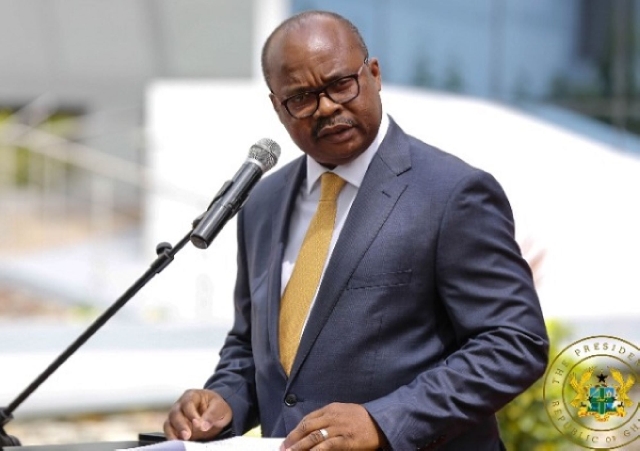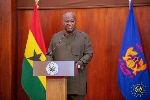BoG cuts policy rate to 14.5% amid covid-19 pandemic
 Governor Dr Addison
Governor Dr Addison
Following the outbreak of COVID-19 pandemic which has forced many Central Banks to cut policy rate, the Bank of Ghana today announced a cut in its policy rate by 1.5 percentage points to 14.5%.
This is the first time in 14 months since the policy rate was reduced to 16%.
The reduction is expected to stimulate spending in the Ghanaian economy as cost of credit will go down whilst more money will be in circulation.
The Central Bank in a release cited the negative impact of COVID-19 on exports, imports, taxes, and foreign exchange receipts which will culminate in a slowdown in economic activity, as the major reason.
“GDP growth is forecasted to decline to 5.0 percent in a baseline scenario. In the worst-case scenario, GDP growth estimates could be halved to about 2.5 percent in 2020.
“These assessments are preliminary as the situation is very fluid and the degree of uncertainty concerning the outbreak is very high.
“This means that there is a likelihood that these assessments could change rapidly.”
It continued, saying, the latest inflation reading for February 2020 estimated at 7.8 percent and unchanged from January 2020 is expected to remain within the target band for the next quarter.
Impact of Coronavirus on economy
On the domestic economy, the Bank said its internal assessment shows that the pandemic could impact Ghana through a number of channels.
First, the dampened global demand could significantly impact Ghana’s crude oil export earnings with major implications for foreign inflows and tax revenues.
Additionally, there is also a likelihood of export restrictions from advanced economies and other emerging market economies which could create supply chain shortages for Ghanaian businesses, with significant impact on imports of intermediate and capital goods, as well as consumption goods.
This it said is expected to negatively affect inputs in the domestic production channels with severe consequences for growth and tax revenues which could become more pronounced by the second or third quarter.
In addition, crude oil prices have declined sharply to historically low levels, and already creating negative shocks on exports, albeit with some offsetting effects from rising gold and cocoa prices.
Source: classfmonline.com
Trending Business

UNDP, stakeholders develop Ghana’s disaster management and risk finance strategy framework
15:50
NPA hosts second downstream compliance workshop to strengthen petroleum sector standards
11:23
GFZA CEO tours Tema Free Zone Enterprises to strengthen strategic partnerships
11:05
Finance Minister vows lasting economic stability and lower food prices in meeting with FABAG
08:46
Bawumia’s Gold for Reserve Programme is anchoring the Cedi – Kofi Bentil
13:27
DVLA opens new office in Adentan, CEO expresses gratitude to all stakeholders
08:27
President Mahama delivers on 24-hour economy promise within first 120 days
01:34
Gov't inaugurates task force to oversee establishment of Ghana’s national airline
13:57
NPA boss heaps praise on Finance Minister and BoG for stabilising Cedi, fuel prices
11:18
President Mahama sets $10 billion target for non-traditional exports by 2030
03:34



